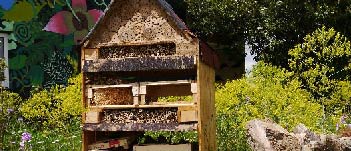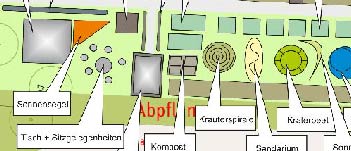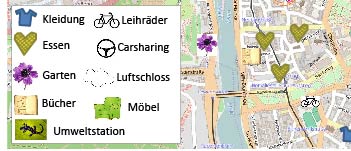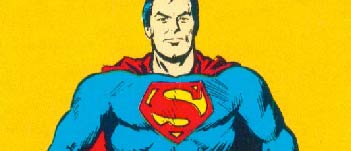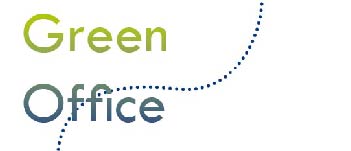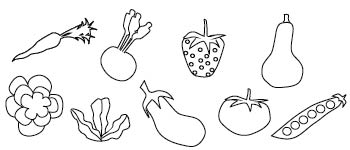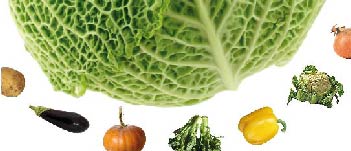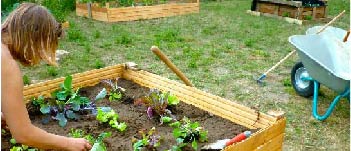Referat Ökologie
For a diverse, sustainable university
The Department of Ecology [Referat für Ökologie] was established to raise awareness of ecological issues among students and university management, and to actively bring about change at the university. Together with committed individuals, we aim to make the university more sustainable in the areas of: teaching, operations, research, networking, and student life.
This is a significant task, which is why we are always looking for interested and dedicated people to join us in realizing this vision.
Our Meetings
We meet every Thursday during the semester and every other week during the holidays at 6:30 PM at the StuvHub (Emil-Fischer-Straße 90) and via Zoom.
To join or to ask further questions, please briefly contact us via email (stuv-oeko@uni-wuerzburg.de) or Instagram (Link; @ref.oeko) DM. We look forward to seeing you!
CampusGarden 2.0.
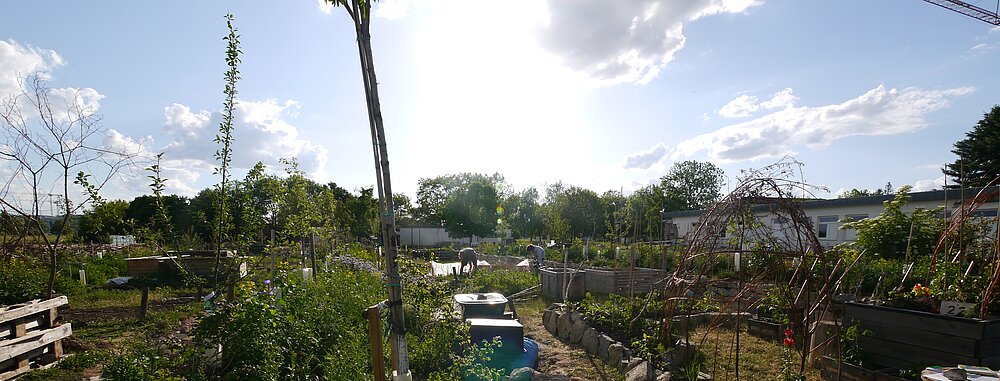
The new CampusGarden is a volunteer-run, student gardening project on the campus of the University of Würzburg. Since February 2022, the new CampusGarden has been developed based on the 3-Zone concept.
Would you like to join? Then send us an email!
Workshop Series 2025
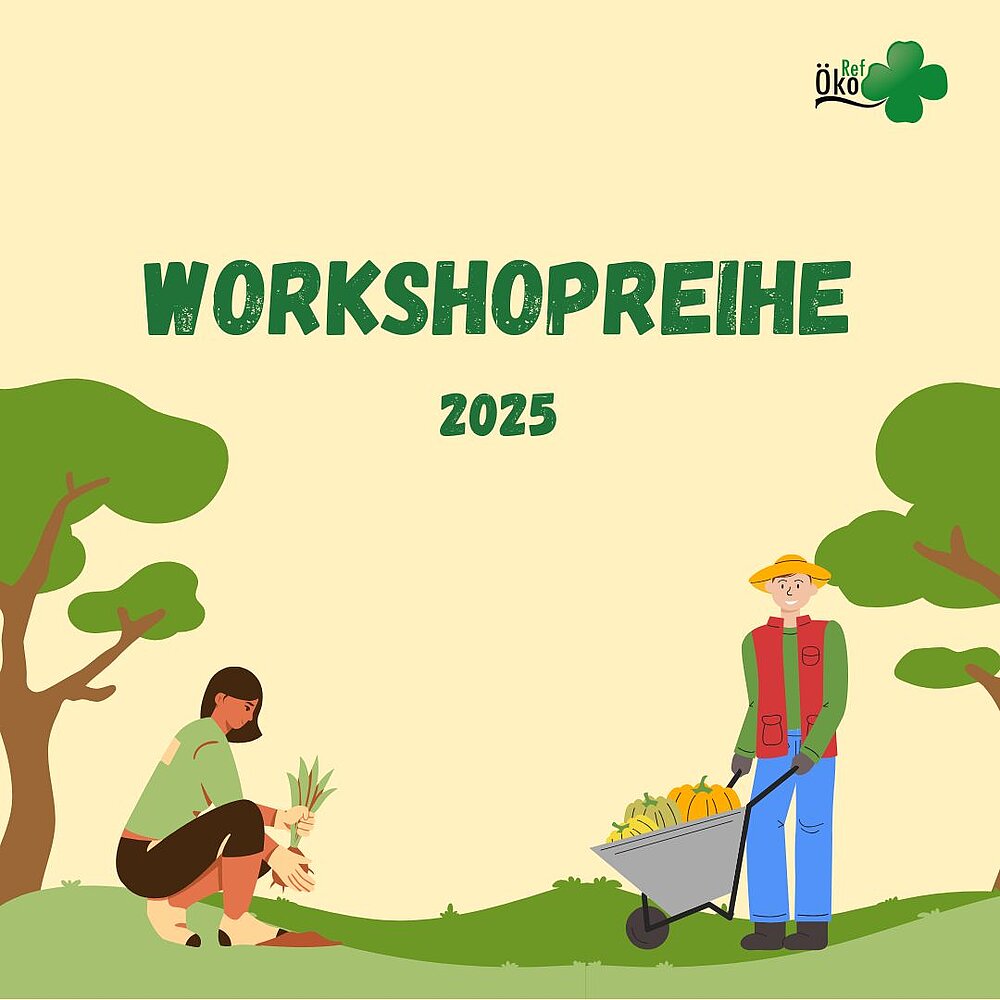
The RefÖko is organizing a workshop series to help you make better choices for a more sustainable daily life.
TE CampusBank

With the transformation experiment CampusBank, the direct desire of students for seating options at the Campus Hubland Nord is to be combined with ecological sustainability.
Pubquiz
Since mid-2023, we have been regularly hosting a pub quizzes on the topic of the environment. Teams (of up to five participants) have to answer questions from ten different categories, with topics ranging from educational to simply crazy.
Sustainable City Map of Würzburg
Have you always wanted an overview of the most "sustainable" places in Würzburg? Then take a closer look at our sustainable city map!
ÖSHT 2021
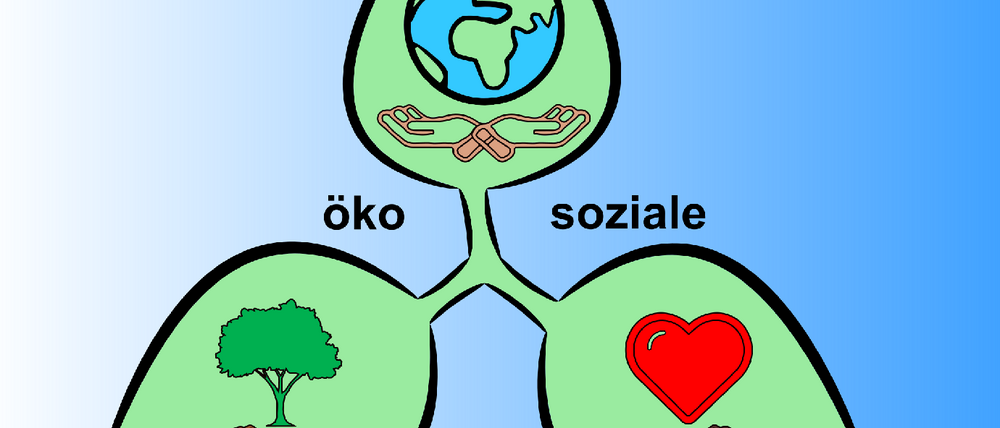
Ökosoziale Hochschultage [Eco-social University Days] at JMU: from June 21 to June 26, 2021, a diverse program of lectures, workshops, and film evenings centered around the topic of sustainability was offered. Join in!

We are proud to have received awards for our commitment and achievements.
- 2024: WVV Environmental Prize
- 2023: 1st place in the nationwide "Germany Buzzes Planting Competition" for community gardens
- 2023: Jury Award of the WVV Environmental Prize
- 2023: Nomination for the "German Engagement Award"
- 2018: Recognition as an official UN Decade Project for Biodiversity
- 2017: First Castell-Castell Prize of the University of Würzburg for sustainable action
- 2016/17: Recognition as an official UN Decade Project for Biodiversity
- 2013/14: Recognition as an official UN Decade Project for Education for Sustainable Development
Vernetzung in und um Würzburg
Luckily, we aren't the only ones to commit to the topic of sustainability in Würzburg. Therefore we want to present some of our amazing and essential collaborators. At Würzburg University, there is the Commission for Sustainable Development, with whom we work closely together/who we work closely with. The Botanical Garden has often supported us with useful knowledge as well.
The Bündnis Zukunftsklima [Climate Future Alliance] is a non-partisan coalition of 26 groups from Würzburg and the surrounding area. They joined forces in spring 2023 to provide information about climate-friendly and sustainable actions.
You can find more information here.
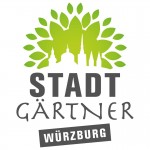
The Stadtgärtner [City Gardeners Urban Gardening Würzburg e.V.] are an urban gardening group in Würzburg, formed in 2012 with the goal of making the city greener, more sustainable, colorful, and edible.
This diverse group includes students, professionals, and individuals with or without gardening experience. They share knowledge and work together to cultivate their green thumbs.
Since spring 2013, the garden project has found its home in the Cairo Youth Cultural Center. In the courtyard, we grow beans, chard, potatoes, tomatoes, lettuce, herbs, and much more. The plants grow in self-built boxes, buckets, wine crates, and rice sacks. Everything we need for this comes from donations and cooperations. The gardening is done collectively and on a voluntary basis.
You can find more information here.
In Würzburg, citizens and social groups have long been committed to the idea of sustainability, giving a face to the topics of sustainability and future viability in the city. This has been primarily achieved through working groups of the local Agenda 21 since 1996 Mobility & Regional Development Working Group, Cycling Working Group, Carsharing & Electric Mobility Working Group, Sustainable Consumption Working Group.
The goal of the local Agenda 21 is to identify ways and develop proposals for municipal decision-makers on how developments at the municipal level can be designed sustainably. The contact persons are the coordinators for the Local Agenda and the spokespersons of the working groups.
You can find more information here.
Greenpeace groups nationwide creatively, passionately, and successfully support Greenpeace campaigns, topics, and projects — including in Würzburg. Anyone who has the time and interest to join us in advocating for the environment is welcome. People aged 10 to 90 are involved in efforts to preserve the last primeval forests, push for an energy policy shift, protest against genetic engineering in food, and oppose whale hunting.
You can find more information here.
The Würzburg district group is active in many areas and invites both members and non-members to actively participate in environmental protection. Focus topics include: landscape conservation; species protection and identification; urban nature; protection and preservation of traditional crops.
You can find more information here.
Numerous organizations, initiatives, and partners present offerings at the Future Festival focused on sustainable consumption, sustainable energy and financial solutions, and much more. Among other things, they demonstrate how easy it is to source organic food grown regionally and organically grown food—and how delicious it is!
The Environmental Station has been a center for for waste/environmental consulting as well as environmental education since its founding during the State Garden Show in 1990. As a professional environmental education institution, it has been awarded the "Umweltbildung.Bayern" quality seal by the Bavarian State Ministry for the Environment and Consumer Protection.
Additionally, the Environmental Station serves as the coordination center for the Local Agenda 21 and is responsible for public relations in the areas of waste management, environmental protection, and nature conservation for the city of Würzburg.
Visitors have access to an environmental library and over 100 free brochures. For outdoor activities, a large meadow with old trees on the bastion and the diverse State Garden Show Park with a herb garden and over 40 different tree species are utilized.
Furthermore, the Environmental Station collaborates with us on our workshop series.
You can find more information here.
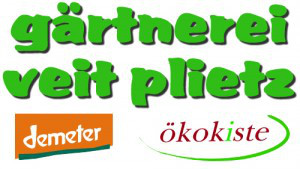
In 1995, master gardener Veit Plietz began direct marketing of his products. The Ökokiste (organic box) quickly established itself as a "organic home delivery service" in the immediate neighborhood. The number of customers increased due to the good quality, service, and customer satisfaction. In addition to vegetables and fruits, the Ökokiste now delivers about 1000 additional products such as milk, cheese, sausage, meat, grain products, and beverages to customers (all from certified organic farming).
You can find more information here.
Open House is a network of people convinced of the importance of sustainability and cooperation.
The association stands for sustainability in various fields such as seeds, biopatents, and crop diversity.
It organizes the Saatgutarche Unterfranken [Seed Ark Unterfranken] and meets twice a year for seed and plant exchanges. The Campus Garden is regularly represented there.
The Naturwissenschaftliche Verein Würzburg [Natural Science Association Würzburg] is a traditional association dedicated to natural sciences and nature conservation in Lower Franconia, founded on August 22, 1919. Since then, the NWV has acted as a bridge between the university and the general public in conveying scientific and medical knowledge. The association's task is the scientific exploration of nature in the "habitat of Lower Franconia". Particular emphasis is placed on disseminating natural history knowledge beyond the narrow circle of researchers and experts to reach the largest possible interested audience.
You can find more information here.
Networking Beyond the Region
Our exchange platform is provided by Netzwerk N for sustainable universities. We attend network meetings and have already participated in the Wandercoaching program offered by Netzwerk N.
This year, we also took part in the Anstiftung Summer Camp—a networking event for many urban and intercultural gardens.
The Netzwerk N e.V. [Network N e.V.] is committed to driving change at universities in the sense of sustainable development across all areas of university operations (administration, teaching, research, governance) and thus works towards a comprehensive institutional transformation of universities.
To achieve this, it primarily brings together students, doctoral candidates, and other actors in the higher education landscape. The network acts as a platform for networking to enable the exchange of knowledge and experiences. It also actively engages in its own capacity building to enhance the impact of its members. Additionally, it actively influences science policy at both federal and state levels.
You can find more information here.
"UniGardening ~ Urban Gardening at Universities" and the "Do It Yourself & Mechatronics Lab" are two student project workshops at TU Berlin. Together, they aim to organize a meeting for similar projects from other universities and structures to network, learn from each other, and further develop the idea. We participated in 2016 and will be there again in 2017, this time with a workshop on biodiversity in university gardens.
You can find more information here.
The Anstiftung supports, promotes, and advises on the establishment of community gardens, facilitates knowledge transfer between projects, and organizes regional and nationwide workshops, webinars, seminars, and conferences.
You can find more information here.





